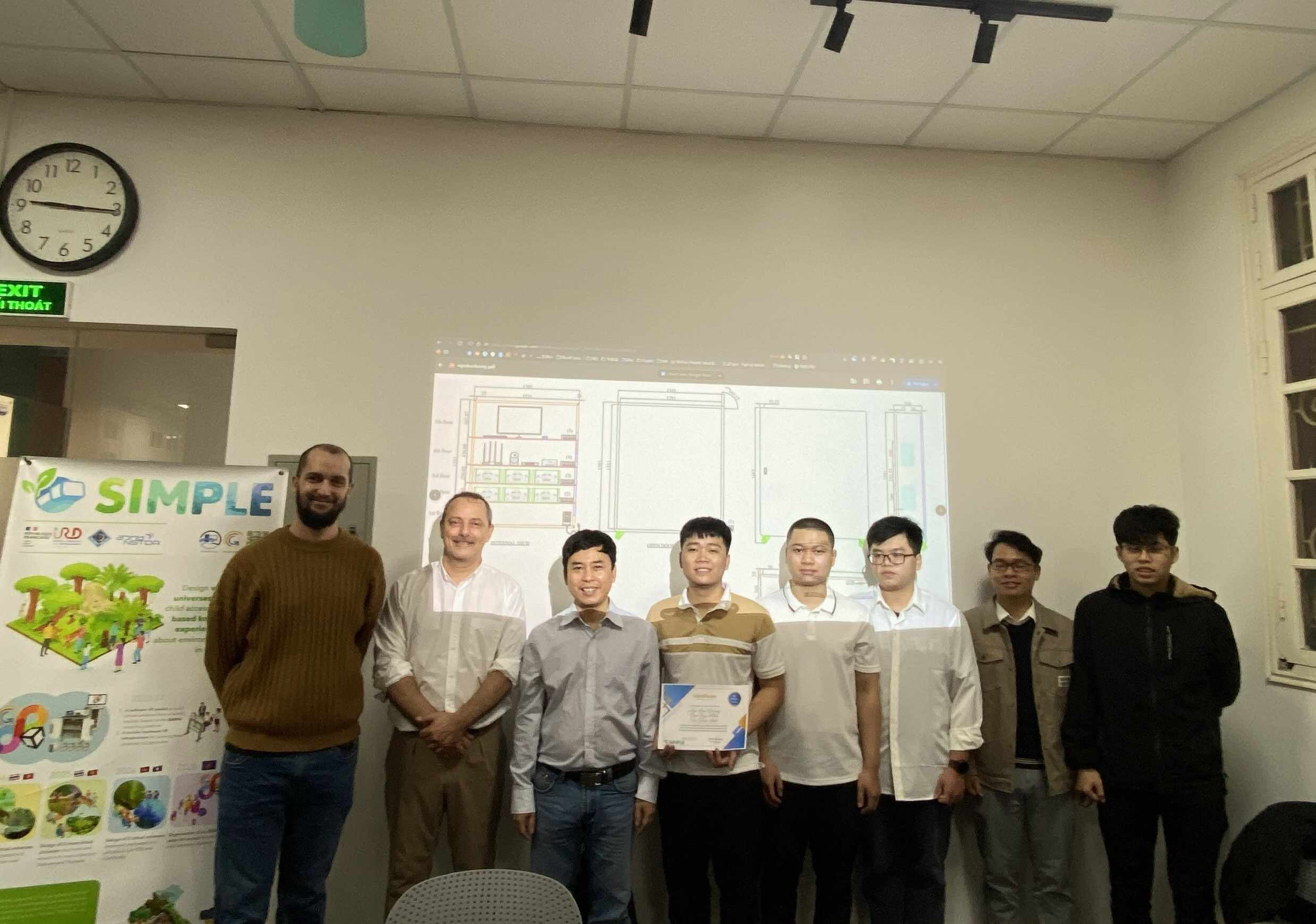
Within the framework of the project SIMPLE – a Blueprint competition had been launched for the design of an integrated learning equipment called the Mobile Metaverse Learning Lab (M2L2) that can be deployed quickly and provide a complete virtual reality playground for classes, even in remote locations with limited Internet bandwidth.
Details of the call can be found here.
The competition targeted students of Thuy Loi University in order to encourage their creativity and participation.
The project received interest from students and after reviewing all the applications, two best teams have been named 1st and 2nd winners.
An Award Ceremony has been organised at ACROSS with the participation of members of these two teams as well as the evaluation committee and ACROSS members.
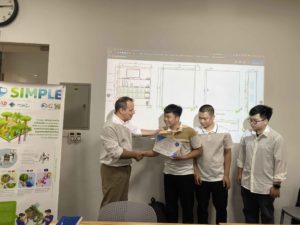
The first prize winners awarded 10M Vietnam dongs: Ngo Duc Duong, Dao Quy Khai, and Vu Tuan Anh
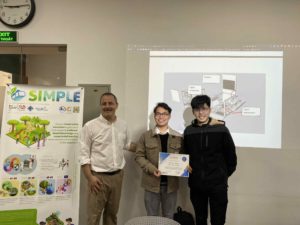
The second prize winners awarded 5M Vietnam dongs: Bui Dai Duong and Bui Thanh Trung
Beyond the competition, Dr. Alexis Drogoul has shared his interest in having the two teams continue working on designing and building the M2L2 for the project SIMPLE. The objective was to have a physical prototype of M2L2 which will be tested and adjusted before being handled to other project’s partners.
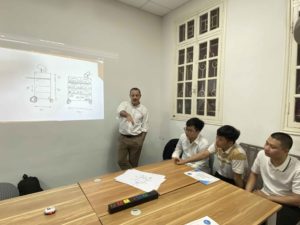 |
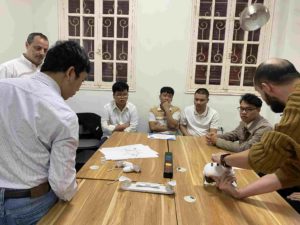 |
Two winning teams are discussing the design and realisation of the M2L2 with SIMPLE project’s members
It’s exciting to see what will be built afterward!
About SIMPLE:

The SIMPLE (Sustainability Issues Metaverse for building Participatory Learning Environments) proposal to the European Commission, under the EU-ASEAN Green Partnerships has officially been selected for the total grant of 2,5M€.
The project will be implemented in Cambodia, Laos, Thailand and Vietnam by the three co-applicants IRD, CTU and NSTDA, with the support of LPI, MERFI, Vietnam MOET, IUCN, INRAE and UM6P and will last for 48 months.
Project Summary:
In light of the complex sustainability challenges facing ASEAN countries, the key to designing effective mitigation and adaptation policies increasingly lies in the active engagement of citizens alongside policymakers and scientists. This requires raising awareness on questions that are sometimes difficult for non-specialists to grasp, and this is what SIMPLE aims to do by focusing on educating young ASEAN citizens on environmental and climate change issues using a unique combination of digital and pedagogical innovations.
SIMPLE will develop, with partner schools in the Lower Mekong countries (Cambodia, Laos, Thailand, and Vietnam), a set of “sustainability metaverses”, i.e., educational solutions based on the integration of immersive virtual reality environments (virtual universes, or VU) with serious games and scientific simulations. These can be used as short modules for workshops with young students or as integral components of the curriculum for high school students. SIMPLE will also be as inclusive as possible to vulnerable children, female students, and rural communities by providing an integrated learning environment called the Mobile Metaverse Learning Lab (M2L2) that can be deployed quickly and provide a complete virtual reality playground for classes, even in remote locations with limited Internet bandwidth.
The virtual universes developed in SIMPLE will be based on calibrated scientific models validated in well-documented case studies, ensuring the realism of the development scenarios that participants will be able to explore. Furthermore, in contrast to recent controversies about the dangers and potential unethical values of metaverses, SIMPLE will highlight the tremendous potential of this technology to engage younger generations, as it will allow students to collaborate virtually in real time to explore solutions to sustainability issues together. Indeed, this dynamic, highly interactive, and realistic content can engage young people in meaningful ways and provide a good foundation for the playful learning processes meant to nurture the “6Cs”: communication, collaboration, content, critical thinking, creativity, and confidence, all of which are essential qualities for future ASEAN citizens concerned with the sustainability of their countries.





